In a no holds barred, candid conversation, Prof. Nandini opens her heart and mind about her creative and critical engagements. Her eclectic, erudite and creative personas unfold in an exclusive interview with Urna for Different Truths.
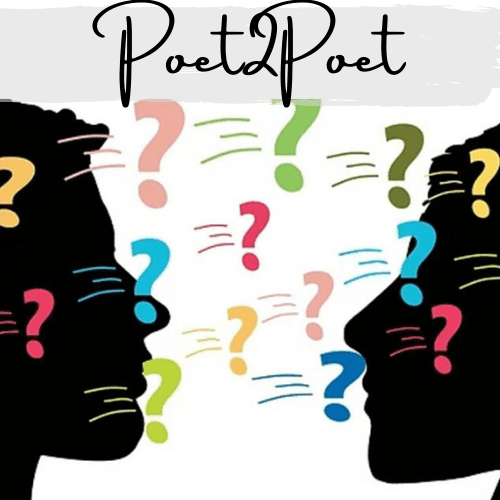
Prof. Nandini Sahu, the Amazon Bestselling Author (2022), is a voice to watch out for in contemporary Indian English literature. She has been widely published in India, U.S.A, U.K., Africa, Italy, Australia, and Pakistan. Apart from numerous literary awards, she is a triple gold medallist in English literature; she received the Gold Medal from the hon’ble Vice-President of India for her contributions to English Studies, in India, in 2019. She is also the author, editor of seventeen books, and former Director of the School of Foreign Languages. She is currently a Professor of English at Indira Gandhi National Open University (IGNOU), New Delhi, India.
Urna: Poetry and fiction are processes of what The Oxford English Dictionary defines as the state of witness “applied to the inward testimony”. Kafka said that the writer sees among ruins “different (and more) things than the others”. The Nobel prize-winning South African author Nadine Gordimer calls this “witness literature”. How do you use this as a theoretical tool in your classrooms and for your creative writing? And how/where do you place yourself as a fiercely independent and socially conscious poet?
Nandini: Thank you for asking this fundamental question, Urna! My multiple identities – as a professor, poet, folklorist, and researcher – are in tandem with each other, and I use each identity to complement the other. I want to make ‘Witness Literature’, a concept popularised by Nadine Gordimer, which I call social mobility literature, responsible and accountable literature.
What use literature is during our times of unrest – is the point of debate, and this is where I consider ‘literature’ as ‘social consciousness.
Literature is an umbrella term denoting art, culture, intellect, opinions, ideas and thought. Well, the role is remarkable! It can stimulate thought processes and create sharper opinions against or for general apathy. I believe that the written word is the writer’s structure of activism. Rather than sulkily returning awards to those that have already got the writers the desired fame, if they aim their pen radically to form opinions and mould minds, there is some use for their writing.
Too many voices are making a chorus now, leading to pandemonium and mayhem. The politicians, journalists, historians, celebrities, teachers, and the new age students seem to be speaking loud and clear – which is good indeed. So, is the writer’s voice lost in this cacophony? Yes, it will be lost if the voice is impotent, meek, and mild.
Euphony is the sound of literature, not meekness. The murky links of politics and literature – power politics, the desire to be politically correct – can make literature impotent. Also, the writer’s desire to please everyone, and yearning for awards, which is subject to political biases, creates ineffective literature, not witness literature or responsible literature. The first step to overcoming this syndrome is self-doubt.
The writer must be critical about his/her pen and pose the question – does my writing make an impact on anyone at all? When the voice of the mob is overpowering everything else, will my single voice be heard? During an age when the divisions of caste damage society, religion, and class, can my pen contest this and be the fabric to connect the disjointed threads? If yes, I must write. If not, it’s better to be the onlooker.
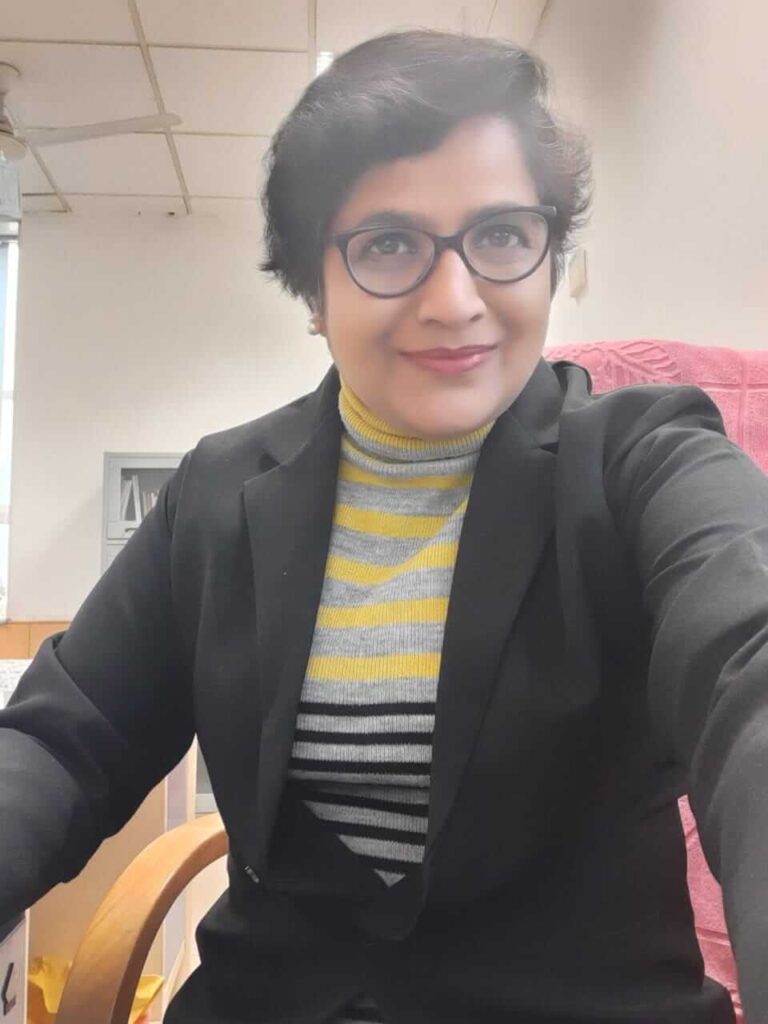
Literature is the “inward testimony” of the witness. Witness literature addresses the depths of discovered implications in the pressure of susceptibility, passionate kindness, and approachability to the lives of the subjects the writers bring into play as the source of their art. As you rightly quoted, Kafka wrote that the writer discovers among ruins “different (and more things than the others) … it is a leap out murderers’ row; it is a seeing of what is taking place”.
To me, the food for thought comes from Albert Camus: “The moment when I am no more than a writer, I shall cease to be a writer.” And let me add that I also use all the above ideas as theoretical tools in my classroom teaching.
And Urna, when you ask me about the importance of literature and language as the agencies of social change, I am reminded of F.W. Bateson, who has analysed the importance of language in his English Poetry and the English Language thus: “The real history of poetry is, I believe, the history of the changes in the kind of language in which successive poems have been written. And only these language changes are due to the pressure of social and intellectual tendencies.”
In his Study of Poetry, Matthew Arnold talks about the future of poetry thus: “More and more mankind will discover that we have to turn to poetry; without poetry, our science will appear incomplete; and most of what now passes with us for religion and philosophy will be replaced by poetry.” Again, in his essay, Wordsworth reiterates his stand, “A poetry of revolt against moral ideas is a poetry of revolt against life. Poetry of indifference towards moral ideas is a poetry of indifference towards life.” Going with the loyalists of literature, I believe that poetry and life mirror each other. Here, I would like to quote Wallace Steven’s (1879-1955) poem, Anecdote of the Jar:
I placed a jar in Tennessee, And round it was, upon a hill. It made the slovenly wilderness Surround that hill. The wilderness rose up to it, And sprawled around, no longer wild. The jar was round upon the ground And tall and of a port in the air. It took dominion everywhere. The jar was grey and bare. It did not give of bird or bush, Like nothing else in Tennessee.
This is a seemingly objective poem that is subjective. The work of art has become an autotelic self here. The poem must make itself a self-sufficient work. As the poet writes or speaks the words to the paper, s/he diverts her/his most subjective feelings objectively. What else is good poetry rather than this amalgamation of the subjective and the objective? The local and global?
I would also like to contextualise my narrative with Indian poetry, an Indian English poet many critics address as an ‘Indian-woman-poet-writing-in-English’. Much Indian English poetry has been subjugated by a so-called canon that almost dismisses female poets. Still, some women poets are apathetic to the male writers’ attitude and the connoisseurs’ callousness to study them, and they substantially contribute to Indian English poetry.
Women poets articulate their experiences in their verses that stand as a testimony of their strong position in the poetry canon. Today, women writers are offering cerebral challenges to their readers. Therefore, the works of women poets need to be construed and redefined. The women of today are empowered and aware of their individualities. Education and globalisation have changed her sensitivities, performances, and points of view. This change in the notion is reflected in poetry today: the poets create their craft with a very self-assured approach, with a decipherable use of language.
Their poetry is candid and emancipated, a celebration of nature/womanhood that lives with a longing to outgrow. Sex is no more a taboo; it is accepted as a part of existence. Also, some women poets dwindle between the ‘self’ and society. The experiences of claustrophobia, alienation, depreciation, self-castigation and sarcastic autobiographical tones, the desire to break out of the prison-like clutch of the orthodoxy/societal norms, the search for inner calm, emotion and love, the reflective and meditative self – get aligned in their poetry.
I am a poet with these prevailing questions – posed at myself and the society at large. My poetry is forever my work-in-progress – with each poem, I grow a bit and purge myself a bit.
Urna: You have 17 published books, and five are currently under publication. A Song, Half & Half is your poetry collection of 67 poems written in 67 days. I am curious to understand what made you focus on the themes of “romantic love” and “nostalgia”, even as your poems celebrated a mysterious, enigmatic, unnamed love that is still knocking on your door.
Nandini: In my poetry, love carries diverse moods, such as compassion, communion, happiness, joy, separation, agony, and loneliness. A person in love is prone to experience all these feelings in his/her life at some time or the other. The joys and perils of love go hand in hand.
In a woman’s life, there is always love – filial love, motherly love, love for her man, love that comes out of compassion for those who are helpless, love for the world of Nature, and love for the creator of this world – all those assets that an ecofeminist can have. My poetry gives evidence of the deep observation of human life and its different traits. I have dipped my pen into the ink that contains humanity, love, empathy, peace for the universe and solidarity of women.
There is minimal separation between my poetic self and my personal self. I observe the prevailing corruption and problems in society and handle the issues in a satiric and ironic manner. For me, it’s important not the ideas but the way of expression. Because most often, cutting-edge ideas come to us after they have become redundant elsewhere. Anyway, I love to articulate feminine sensibility in a feminine way. For me, the world is breathtakingly beautiful. Through poetry, I hope to illustrate a great degree of calmness and sincerity woven into the frame of my experiences.
These 67 poems you are talking about are heartrending experiences for me. I wrote half of them from my Covid bed, profoundly longing for an unfulfilled love, and the other half of the poems were written when ‘love’ entered my home and hearth through the door that I had left ajar. It was a miraculous experience for me; thus, this book was written in a trance. These poems are my touchstones, some transcendental experiences; they are my survival strategies and inner voice.
Urna: In 2020, you received a gold medal from the honourable Vice President of India for your contributions to English studies in India. Is English a hindrance to the growth of other regional and local languages? What is your take on this ongoing debate?
Nandini: It is no historical trivia but a noteworthy fact of colonial cultural history that English literary studies began not in England but in the colonies of India and Africa. In the momentous confrontation from English universities, the inclusion of the English language and literature in the curricula came about as a collective result of the Charter Act of 1853 and the statement of the Civil Service of the East India Company in 1855. They prescribed a competitive examination design with a 1000 marks paper on English Language and Literature for Civil Service aspirants.
Macaulay’s Minute of 1835 had a substantial role in succeeding legislation and applications. His tone and tenor articulated the need for imparting education in English to a cross-section of people whose languages, though rich in indigenous literature and proficient at religious homilies, could never be the language for the distribution of knowledge systems or the implementation of imperial technology.
The year 1893 marked an essential calendar in the moot history of England as Oxford University introduced a school of English language and literature. Most interestingly, Rajeswari Sunder Rajan points out that Oxford’s first Professor of English, Walter Raleigh, had started his career as an English literature academician several years ago at the Anglo-Oriental College at Aligarh, India. Suppose this antiquity has to be carried on to its present form. In that case, one comprehends our flawed, simplistic attitude towards giving in to the notion of the empire, writing back to elucidate the reality behind the construction of English education in postcolonial India.
On a more complex note, George Bottomley’s portrayal of English in India as “Matthew Arnold in a saree” and Srinivasa Iyengar’s “Shakuntala in a mini skirt” to Salman Rushdie’s more biotic denunciation of Indian Writing in English as “the bastard child of the Empire sired on India by the departing British”, there are views galore on the fusion of English studies in India as hybrid artistic merchandise.
To my knowledge, the first surviving book written in English by an Indian was Dean Mahomed’s The Travels of Dean Mahomet (1794). The book was a product of his connection with the East India Company’s Bengal Army, which he joined in 1769, and the manuscript is an account of his involvement in England. Therefore, the entitlement of literary historians to the fact that creative writing in English began in India before 1835 is corroborated. However, any perceptive critic has to evaluate logically if the considerable volume of such literature evolved out of the zones of inter-racial interaction and become a limiting factor for the researchers of English Studies in India.
From our understanding of a chutneyfied variant of English in India to the serious academic discourses here, as a teacher of English, I feel it’s my moral obligation to tell my students the real research behind it rather than moving about the elitist corridors of literature alone. The objective of my teaching and research has been to touch the broad silhouettes of the pedigree of English studies in India and, in the process, to identify the fault lines in the university systems that have accumulated as a consequence of the colonial hangover. And regarding the Gold Medal you are talking about, I am glad that the system has acknowledged my research; it has created ripples in academia and has made me humbler.
Urna: Michael Krauss wrote, “When you lose a language, and a language goes extinct, it’s like dropping a bomb on the Louvre”. As the Former Director of the School of Foreign Languages at the Indira Gandhi National Open University (IGNOU), New Delhi, I know the most tried and tested strategies for revitalising endangered languages.
Nandini: Oh yes, Urna! You said it! Before pinpointing ‘Language Death’ as my serious research, pedagogy, and critical engagement, I would like to talk about National Education Policy (N.E.P.) and its emphasis on language preservation policies.
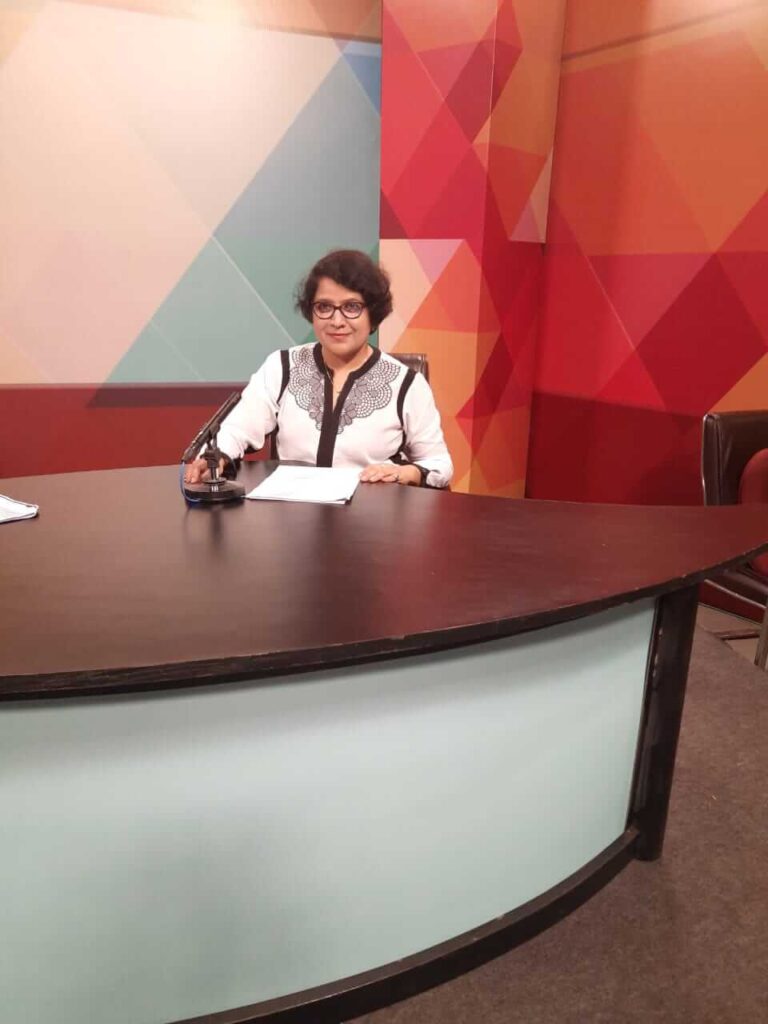
The N.E.P. document gives maximum emphasis on the availability of educational content in different languages, like mother tongue, the local language, state language, national language etc., by disseminating the responsibilities among the 17% English medium schools, 64% Hindi medium, 83% Hindi + Vernacular medium schools in India. The N.E.P. doesn’t impose anything about the medium; it only gives flexible options but facilitates.
Article 343 of the Constitution says Hindi is our official language. Clause 2 says English will linger to be the official language along with Hindi. Education in the country is deliberated most flexibly – as A.B.C. – A: the 10 Hindi-speaking states may make all communication in Hindi while making the content accessible in all the Constitutionally approved languages. B: Punjab, Maharashtra, and Gujarat will correspond in Hindi while making the content offered in local languages and English. C: East, North East, and South India may correspond in English while making the content available in Hindi and local languages.
The N.E.P. document has used the word ‘language’ more than 200 times in almost 67 pages. Language studies have been seriously endorsed. As researchers, we must check language death and preserve endangered cultures and languages.
Language death is the process by which a language stops being used by the people who, until that time, spoke it. To say that a language is dead is like saying that a culture, a people have deceased. Because languages have no existence without people, a language dies when nobody speaks it anymore. When a representative of a language is survived by people who can only comprehend the language but cannot speak it, the language has to die a natural death.
The archive vanishes forever when the last speaker of an oral or spoken language (which has never been documented) dies. Do we know how many languages are on the verge of dying? How many are endangered? Before we can arrive at an estimate of the range of the crisis, we require a standpoint from which to view it. Commonly estimated statistics about the number of languages dying only make sense if they can be correlated to a consistent figure about the total number of languages alive in the world today.
But how many languages are there at present? Most reference books published since the 1980s give a figure of between 6,000 and 7,000, but estimates have varied in recent decades between 3,000 and 10,000. Pagel, an eminent scholar of language studies, wraps up that there might have been as many as 600,000 languages spoken on earth years back or as few as 31,000; his’ middle of the road’ estimate is 140,000 (Pagel, Mark,1.6). Even if we take his lowest estimate, it is evident that far more languages have expired in the history of civilisation than now continue to be spoken.
While corroborating this research regarding language death, through my research and field studies as a folklorist, the object of my research has been to sensitise the readers and researchers on this very important subject: language death, keeping in view the following research points:
- the Nature of language death
- the types of language death
- the market value of languages
- the cultural value of languages
- the causes of language death
- the consequences of language death
- the methods of language preservation
- the association between languages and cultures
I am a researcher, a humble researcher, that is, at the altar of the vast arena of language studies. I hope and pray that someday I will be able to tell you that in the process of my research, I have been instrumental in preserving at least one endangered language for the progeny.
Urna: Folk poetry is part of a society’s folklore and is usually integral to a culture’s oral tradition. When sung, a folk poem becomes a folk song. As a folklorist, how important is folklore in defining cultural identity?
Nandini: At the beginning, I told you that the poet-folklorist-teacher-researcher in me all go hand-in-hand, and I fail to tell who’s from whom. Myth and folklore have always supplemented material for my poetry. Sukamaa is my folklore, and so is Sita. And so is Ahalya in my most recent poetry collection, A Song, Half & Half.
Sukamaa and Other Poems is my fourth collection of poetry. I am a poet in search of the distant frontiers that lie beyond picture-perfect realism, where the currents of the heritage of a lost world continue to amend the present. In the ephemeral times, what remains eternal is the petrifying charisma of death, the dark elegiac elegance.
I am a voyager in this physical and the metaphysical; I focus dramatically on the edgy exchanges between unusual human feelings. I blend poetic tales into epochs in a vast, ostensible narrative of Indian English poetry. I seek to create a constellation of memorable images in my poetry, set against the augmented canvas of Nature at its raw.
My poems are about some muddle, then making peace with myself; misunderstandings, understandings, and changes are played out in a world that’s always capricious, ever-silting, and in which the prey and the pursuer persistently shift positions. My poems are, in a way, the manifestation of the voyage of a lifetime. Sukamaa can be called the lyrical biography of a woman where the tribal, Kondh woman is the protagonist with many layers of her personality.
In my mythical, long narrative poem Sita (A Poem), Sita is a woman close to Nature – she was the original ‘ecofeminist’ – if I may! Deserted twice, abducted once, she never spent her life brooding over a decipherable destiny. Instead, she took charge of flora and fauna, and then her children Lava-Kusha, as a single parent until they were twelve. She was like Mother Earth. She embodied patience, endurance, optimism, love, and motherhood.
At one point, Sita also realised her weaknesses, like any mortal woman. She tampered with the laws of Nature by believing in a golden deer, whereas rationally, she should have thought that Nature could not produce a golden deer! She crossed the Lakshman-rekha and doubted the integrity of her brother-like brother-in-law, Lakshmana, when he denied leaving her alone in the jungle and searching for his brother Rama. She accepts her culpability, thus sending a message that guilt and punishment go hand-in-hand, even for Goddess Sita.
Sita’s silent acceptance of injustice, her fire test, cannot be manipulated as her acceptance of victimhood, setting a platform for future injustice to women through domestic violence, bride-burning, Johar or Sati. Sometimes critics are like lice on the body of a text. That’s what some critics have done to the character of Sita in the Ramayana; they have mostly distorted her character and personality.
For me, nonviolence was Sita’s strength, and she was a true Satyagrahi; she defeated patriarchy at every step by not attacking the accuser with the same weapon. Thus, I transact with this poem’s more critical questions of patriarchy and identity politics. It’s a poem about a text’s patriarchal management, gender, and identity issues. Finally, I talk of today’s women, the new women, and their strength of character vis-à-vis / as an inspiration from the character of Sita, who, to my mind, remains a living prototype.
Fritjof Capra, a physicist, whose The Tao of Physics (1975) was inspired by a mystical experience in which he realised the working of the cosmos to be “the Dance of Shiva.” He comments about the vibrating universe and peace: “Modern physics…pictures matter not as passive and inert, but as being in a continuous dancing and vibrating motion whose rhythmic patterns are determined by the molecular, atomic, and nuclear structures. This is also how Eastern mystics see the material world. They all emphasise that the universe has to be grasped dynamically, as it moves, vibrates, and dances; that Nature is not in a static, but dynamic equilibrium.”
I find its Indian parallel in our myth and folklore. Both linguistically and discursively, there is this common claim of Hindus that God stands for G.O.D. – Generator, Operator, Destroyer, i.e., Lord Brahma, Lord Vishnu, and Lord Shiva – and such ideas only make the familiar unconventional and the strange more familiar. The word Shanti, peace, is firmly couched in the Sanskrit, predominantly Hindu tradition – but it’s everywhere – in Eliot’s The Waste Land to Madonna’s lyrics to Michael Caine’s character in the film Children of Men (2006).
In Indian mythology, Sita spreads the word ‘Shanti’ in its true spirit through her peaceful rebellion. She is the Generator, Operator, Destroyer, and the familiar and the strange; both are her ideas of taking life in her stride. A part of me says that Sita should never have given even the first fire test after Rama rejected her publicly in Lanka. Instead, she should have gone back to the lap of Mother Earth at that instant without giving Rama the joy of being her rightful husband and the father of her children. After all, a man had accused the character, the purity, the sanctity of a woman, which is the ultimate unbearable thing for her! Why did she bear with this humiliation, prove her purity, and go back to the man who had no respect, no trust, and no faith?
Yet another part of me believes what Sita did was most desirable. After all, a woman stands for patience, purity, penitence, and perseverance. She took the fire test and proved that what society can think of a woman from its narrow outlook is wrong. She earned the reverence of all by fire-baptism. Next, she had to return, forgiving Rama for his first-ever mistake because she truly loved him. Also, she had some incomplete work in her life as yet. A woman, they say, is complete with motherhood because she is the creator.
She had to perform her duties as a wife, queen, daughter-in-law and, most importantly, a mother. Thus, I leave it to the reader of ‘Sita’ (A Poem) to frame his/her individual view of Sita’s character. For me, Sita was a rebel even though she never fought back with the same weapons because she didn’t believe in the victor-vanquished theory. She had more patience, courage, and conviction than any woman because a non-violent revolution needs far more perseverance than a violent one.
I have posed some existential questions of life through this poem, through Sita’s questions to Lord Rama and society. Through my long narrative Sita, which can be read as a poem of social mobility, and my folk poetry, I salute all ecofeminist women in their physical-digital-metaphysical forms!
My most recent creation Ahalya in A Song, Half & Half, problematises the metaphor ‘touch’. She doesn’t want to be touched by her archetypal lord to redeem her of a sin she never committed.
Finally, I will conclude by writing that I am equally conversant with Myth and Folklore as a researcher and teacher. Folklore is the cultural identity of a civilisation. I am utterly privileged to have designed the M.A. in Folklore and Culture Studies (MAFCS) for my university, IGNOU, and many other academic institutions, thereby contributing to Culture Studies and Cultural Studies in my small little-squirrel way.
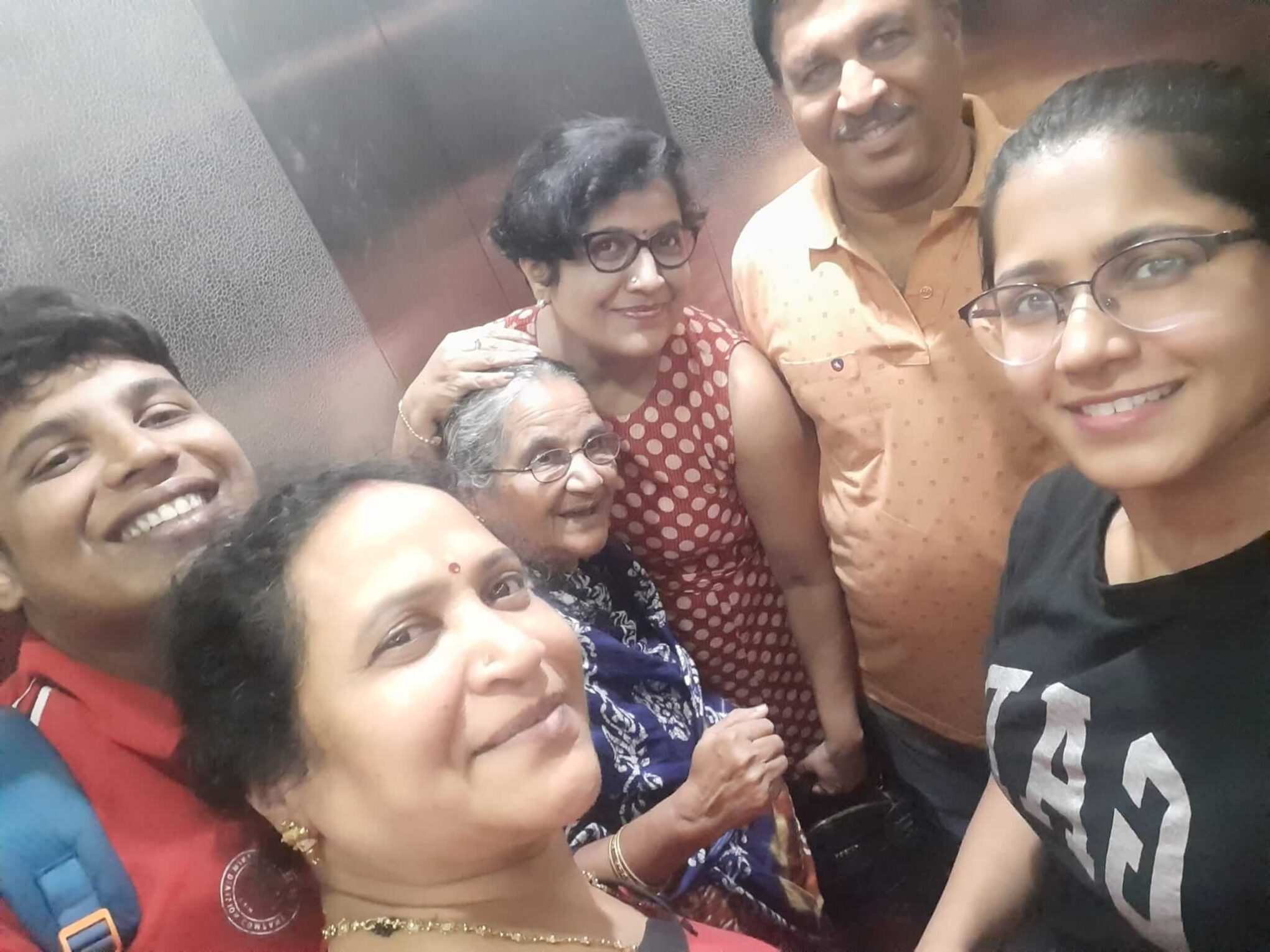
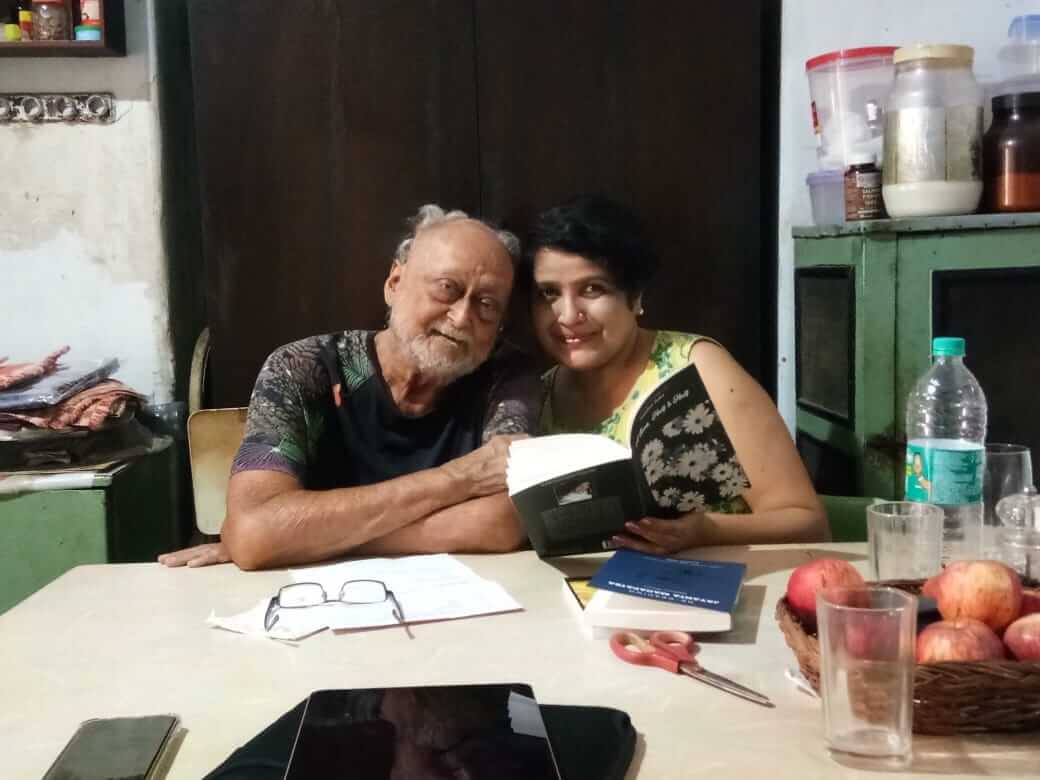
Works Cited:
1. https://newlearningonline.com/literacies/chapter-1/crystal-on-language-death
2. https://poets.org/poem/anecdote-jar
- Sahu, Nandini. ‘Responsible Literature, Witness Literature’, CSR VISION, Vol. 4, Issue 12, April 2016
4. Sahu, Nandini. Sita (A Poem), The Poetry Society of India. New Delhi, Reprint 2020.
5. Sahu, Nandini. A Song, Half & Half, Black Eagle Publications, Dublin, U.S.A., 2022.
***
***
Five Poems by Nandini Sahu
Poem # 1: Erotica
I have been that fiery ace beyond your remotest dreams. My five feet four inches mount is a boiling desert of sand dunes, mirages, and retreats, the only relief from which has been to be in the dusks of our consummation, deep and intimate. My eyes are sweltering, like comets which char the mind and scale the temperament. My mouth is a volcano and my kiss, a detonation, an ignition. My embrace is a ring of fire and my breath is the brutal blast of sunny gust. My tress is like some intense flicker and each string of hair on me is a discrete catalyst. My hidden depth is a subterranean contour like a foaming sacrificial fire in which you scorch and melt. But then, my love, every time you come out pure and even more expectant. You put your points across — on corporeal desire – but moan, nothing kills the pleasure of erotica than this complimentary cypher. I think there is something egalitarian here, because longing between us is like a binary death, like some instant dying of our blended breath or like the vanishing of an unfamiliar bizarre perfume flowing between us swiftly in this naked compartment. But today, I felt, nay, I am rather sure, the chamber seared and singed like amber. The deeply private person that I am, I do not know who knows our depraved surreptitious truth. I do not see who parks itself astride my back who grazes my sides so tenderly on my way to the shadowy elevation. But still, I am so glad, you express yourself in your element. All my body is sugar to your mouth and all my fragrances, a grassland to your senses. Our positions keep changing like locations of a prime-mover on this large queen-size bed – our pulverised den. Our inner voice echoing each-to-each and parts of the body speaking silently, having a dialogue as much. My ears burn with your favourite game of biting my nape and earlobes while I am in concert with your masculine body hair to your midriff to tailbone to fingertips to toenails. You whisper the art of unclothing is also a sculpture one must master as such. Your perfect foreplay, the act of arousal, is more like the Bildungsroman on your part. It’s the science of peeling the skin of love, erotic love that is, covered underneath some feebleness, fragility of a roguish arch. Eyes play their part in tandem with our bodies, deeply probing into each other in this surreal, transcendental trance we merge. I feel my body feather soft and cotton light my sentient gets fragrant in your elevating love-making act. In your strong masculine embrace I melt bit by bit. You sing a divine song into my being. I become yours. After all, I master the art of submission and that of comprehensive surrender. Now, I clasp your elongated lithe arms and fierier hands than fire. I love the quavering margins of our bodies and our hair smelling of yearning. The lively fleeting feet, the fine agile thighs the rounded supple breasts and scintillating eyelids of our craving the long clandestine dusks you gave me, my lover, our twisted weapons, breast to breast in the loom. The faded red lamp, blooming with magical shadows and its overcast objective gear kindled a wizard flame. It always happens with us, your body does this rendezvous with mine — fond, subtle terpsichore twirling. The animate, insatiate ball of my nipples in your mouth — your touching me, secure, shielding, penetrating, your robust tongue and strong fingers finishing where I had been waiting for years for you in my jasmine-slimy-cave — I moan and sigh! Yes, it happens. And here you are sitting alongside, legs to one side, convulsion in the body. I can bear it no longer. I touch the inside of your masculine thighs. Your response is to interchange. Then there is this shudder. My neck and nape are numb. My heart wallops and soars as my fingers go to your glide and guide you there to the hidden treasure. “Come slowly, love!” I fumble. But nay! After making me a poem, it’s time for you to twirl. Now you are non-compliant, defiant. It’s no less than some divine accomplishment. You are jerking, like that gush of wild west wind!
Poem #2: Medusa
I am Medusa. I merge with you, my myriad-minded-molten-man, my melic-moon-man. See the sunny side of our youth and middle age and let us amalgamate with our hearts beating each to each. The melancholic sides of this mountain, these time-teethed melodies, the knowledge of the sombre moments make me amok layered, mist-mouthed. The mercurial mirror of my mind is in love’s melodious conch. I am the Midas of the Muse. I germinate into a misty lunation. You moan, “Can you give me only one boon, my moony moon? My yellow moon! Tell me in extenso. Will you be my blowtorch?” Well, you know, I will never reduce the illumination of my sparkling eyes. Because you claim my eyes have been your solitary gain in the midst of life’s never-ending pain. Thus, you make me some fitch. In some birth, I was Medusa of the three Gorgons, daughter of Phorcys and Ceto, sister of Graeae, Echidna, and Ladon – the alarming and awe-inspiring beasts. They predominantly did butch. The gorgeous mortal Medusa was the exemption in the family, until she incurred the wrath of Athena due to her conceit or because of an ill-starred love affair with Poseidon – that was her nocturnal notch. This life, being Medusa, I dance with the oceanic waves and move with the sea. The rhythm of water has set my soul free. I get into my past Surreptitiously, like getting into a cave. See my ‘laugh of the Medusa’ epoch! I become two people in there, one says ‘yes’ and one ‘no’ to history. Apparently, my beauty has surrounded you, encircled you, and made you gasp. Though you relish my serenity even in that facade. Just that, like a bad parent, you planted a seed and walked away. You did most definitely so, making me Medusa. Now I have the courage to let go of what I cannot change; now, I am life’s firmest, wildest catch. Medusa is non-judgmental, audacious, beautiful, flexible, yet unyielding. Medusa is some myth, and yet she is the ultimate truth. Medusa is many lives in one life; she can be like that veiled botch. The flag and emblem of Sicily feature on her head. Two species of snakes contain her name: the venomous pit viper Bothrops is Medusa and the nonvenomous sea serpent. Atractus is also Medusa. She epitomises philosophy, beauty, and art. She challenges the long tranquillised social slumber. I clearly remember there is something beyond the fence of the past. She is my chosen image of myself to show myself to the opaque world. The range of her emotions is limitless. I am the Medusa myth, I am the doleful exclamation of the metal-faced dioch. A very tentative person I have become, believing in a benign God, the Ardhanarishwar. Singing like a free-swimming carnal method of a coelenterate, like a jellyfish, is my free-thinking vouch. I have an umbrella-shaped body with cutting-edge tentacles on my couch. Medusa is this phase of my life cycle which substitutes with a monogamous phase. I know I should either write with my body or choose to stay ensnared. My ‘écriture féminine’ takes encounters with conformist patriarchal schemes. I address this through the edifice of our robust self-narratives and letterings. You, my delectable, are with me in this scheme, in my Medusa epoch. God knows when your mild woman went wild now that the margin of your love has been rising from stretch to stretch. You are the song of my ululating tongue. Now life has become such.
Poem #3: Nature’s Negotiation
I hadn’t thought of writing about nature’s negotiation until you told me what stone we are carved from, what lesions make you, you and me, me, to this extent. The nights of solitude wound me, the yellow moon incites my scars. Yet, I am consumed by the melancholy of your extant; my past suffers in its bereavement. You fleece the things that you should share and say what I want you to hide. I pretend to laugh. But my ebullient laughter can't hide my scars. I can't put my quiet ache under this disguise at this moment. You have come to my retreat after a long yearning you have given words to my yearnings. Isn’t this negotiation of nature enough for us, my love? Isn’t our home home-enough? Our nights, night enough? Aren’t oceans, ocean enough, butterflies, butterfly enough, rains, sunsets, mountains, birds, wind, sunrise, leaves, ladybugs enough in their nature and spirit? Nature took off its life from the day of our acclimatisation. Now, I see an icier shoulder on the negotiation table. I see a responsive flora and not too wearisome a boulder, and our dropping of chains for shackles — well, I comprehend no other floor of commitment.
Poem #4: Sisterhood
“Women instinctually know how to nourish each other, and just being with each other is restorative.” – Tanja Taaljard Thus, I talk a lot about solidarity and sisterhood. My sisters and archetypal sisters may hear me out! I have been accessible yet peripheral, non-judgmental, non-indulgent beyond all glamour, glory, and the social scanners getting into reckless and pointless things yet. I fancy my sisters to appreciate, in spirit, that I live alone in the company of others living alone, each one fortified by a lone ache of the heart. The fact that I was born in July, the volatile time of the year — they need not categorise any much of my temperament. Now there are mornings when I wake up but I don’t like to get up. Lying on the bed, I regret my squandered years that I have been that type who fits in anywhere. Ahh, why have I been just so perfect!? Full of campaign and stratagem, I still believe that it’s possible to change the world, this planet. My sculpted sisters often look at me and sigh, ‘I want to be a woman like you, bold and independent’ I wish they saw some tiresome apprehension in there. Some enduring experiences utmost. Why only sisters? Even my mother’s isolation is getting on my nerves. It’s a detrimental amalgam. Some kind of panic of an avoidable panic, some fright. Yet, the gulf between me and my ‘sisters’ has told me, seclusion has its own goodies to offer – I cheer myself up, which some of them make-believe not to make out. Seclusion has become my only discipline, my skill, my dexterity, and my mental state. These days I live in a new home, a newly constructed house, that is, where no one lived in the past, no one made love, no one died nor none got exhausted. Just that, the highlighted nature of the house makes it look paradoxically alive and animate. I call it ‘the power of white!’ Here, in fact, yet elsewhere, I sleep poorly, for forever I am sleep-disoriented. I boast I swank that I take advantage to become so prominent and, well, such distinguished! I heard that the female combatant knows how to fight with the world even without a fight. She discerns when not to raise her sword, but as a substitute, she holds up her heart. A sister’s safeguard is not a resistance to counter others, but a sanctuary for a wretched heart. If recuperative of each other is the case with sisterhood, Someone, please refurbish, revamp me, be my special kind of mind-and-body-double, no matter where and what.
Poem #5: The River
The night when I became the river and heaved the night when you longed to flow into me and submerge in my hidden depths, was the night of my rebirth. You flew summarily into me with the energy of a hundred horses when I made you the ocean. We then defied the empirical discourse of home and hearth. I became your nether world, the archetypal tragic protagonist, the prototypal loser, morphed into a woman, permanently standing in the past till the last breath. My desires did lie in limbo for ages. My isolation, world-weariness, and middle-class quandary, my ever-dependable pledge, coated in grime, lay in your path. Dingy and submerged in the gloom, we were deep-deeper-deepest with a metallic taste in the mouth and nostrils. Lamps attached to helmets and batteries shoved into the holder of our waist. You knew this river has more stories in her life than all your textbooks put together. And she has emotional authority over all of them, like ontology and epistemology, the myth. In my endocentric approach, I did confuse dignity with disposition. Integrating public and private lives for healing was my need. I had nothing except myself to offer you. Did you loathe it? But you were the sail that left too early, much before time. I respected myself way too much to beseech. Sometimes you play to the gallery. You say things to make people acclaim your worth. Slowly I became just a white elephant in your life, though you were my apples and oranges — a completely different truth. Well, you appealed; I was a hot potato — too difficult to deal with. Convivial, going too sad, I was flowing from desirable to redoubtable. You were my temple where you made me the benign Goddess. Small, not voluptuous, the Goddess with humble breasts. You christened them; they were slippery, white, pure, holy, and divine. You created a life of consequences that is best in an emergency. Equipped with more intelligence than needed does me nothing worthwhile. You are a ten – but I never trust your success or failure. Because I am the river of cosmic loss. Loving even when hope is over, because there’s no other choice, like birth or death. I was like wheels settling in motion—because I knew that the universe has perfect timing. I am perfectly capable of managing my moods, I am the river of youth. No one should patronise me by deciding my pain and pleasure. Naming names is a game that I could never play. False narratives did never germinate in me; they are rather uncouth. My face suffuses with colour when you murmur or dribble in my ears those Agamemnon jokes. You are privileged; thus, your ultimate act of love is effortlessly letting someone go, refined and couth. These days I mostly see myself as a painting. That is my borrowed brilliance at the cost of making animosity with crocodiles, I share my water with. One little step at a time, I practise that, repeat that to myself. With the hollow cynical smile of the isolated, I am too invested in your esoteric world of bubbles of froth. Working all the while, I cannot figure out what I am working for. The big question is how many stories am I willing to write! Like a rising tide, I do lift all boats of amity as well as wrath. When I rain, I actually pour. Can you simply enjoy this rivery-rain when you can. After all, your life is where you direct its path. Tune out the noise and listen to my heart. You taught me to turn tables and drop heartbeats and thus, I grew on you. As if you are prudence’s goldsmith! You built something where nothing existed before. In your large heart, there was a roomy room for me anyway beyond these demographic shifts of destiny’s hidden depth. Now, a quick ten-point-summary of our lives I ask from time for only what I bring to the table myself has been my impassable or my uncluttered truth. Never more deceitful is it than when one espouses virtue and brevity or foolhardy as hidden agendas of truth. Truth does grow on you if you give it time’s unbreakable faith. I have been able to think of little else than this for my past invades my present in an unsettling way. Present The present can't give me a respite from the heartache of the past. I am an automaton, just a moving sculpture breathing to the ocean’s most exacting taste. You will agree that there is no sad wisdom than a ripe fruit left to rot? Pain doesn't get any easier, even being the river! There are larger forces at play here than live-love-die; it’s a course I believe worth striving for in some metaphoric heath. You have been there by design, not providence you are the one I have set my heart on. I am mindful of my footprints while marvelling at the enthusiasts’ orbiting my mammoth. Well, I am done with the life that I thought I wanted. I did do away with the notion that life ought to be what I designed long ago; this is my ground beneath. But then, at the end of the day, I know that "The Sabbath was made for man, not man for the Sabbath.”
Photos and video sourced by the interviewer

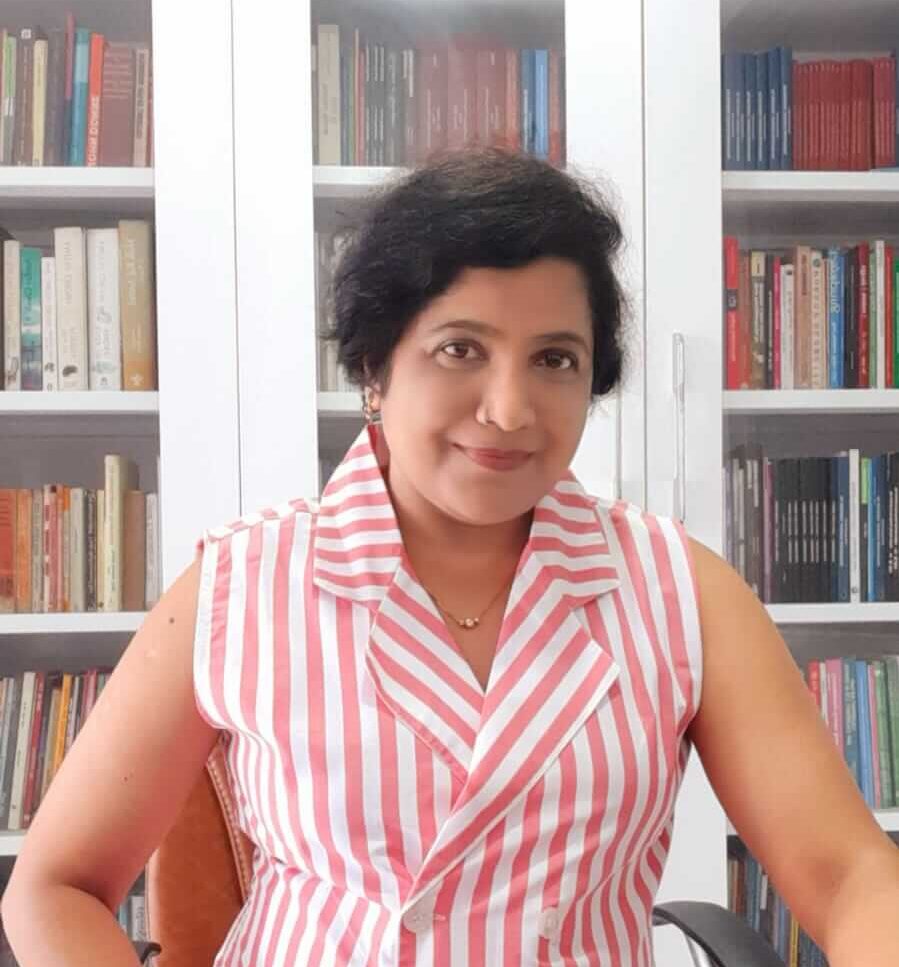
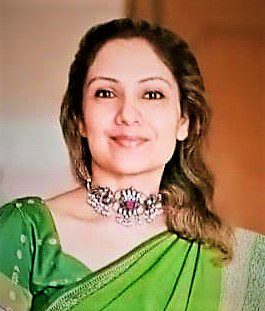



 By
By
 By
By
 By
By
 By
By